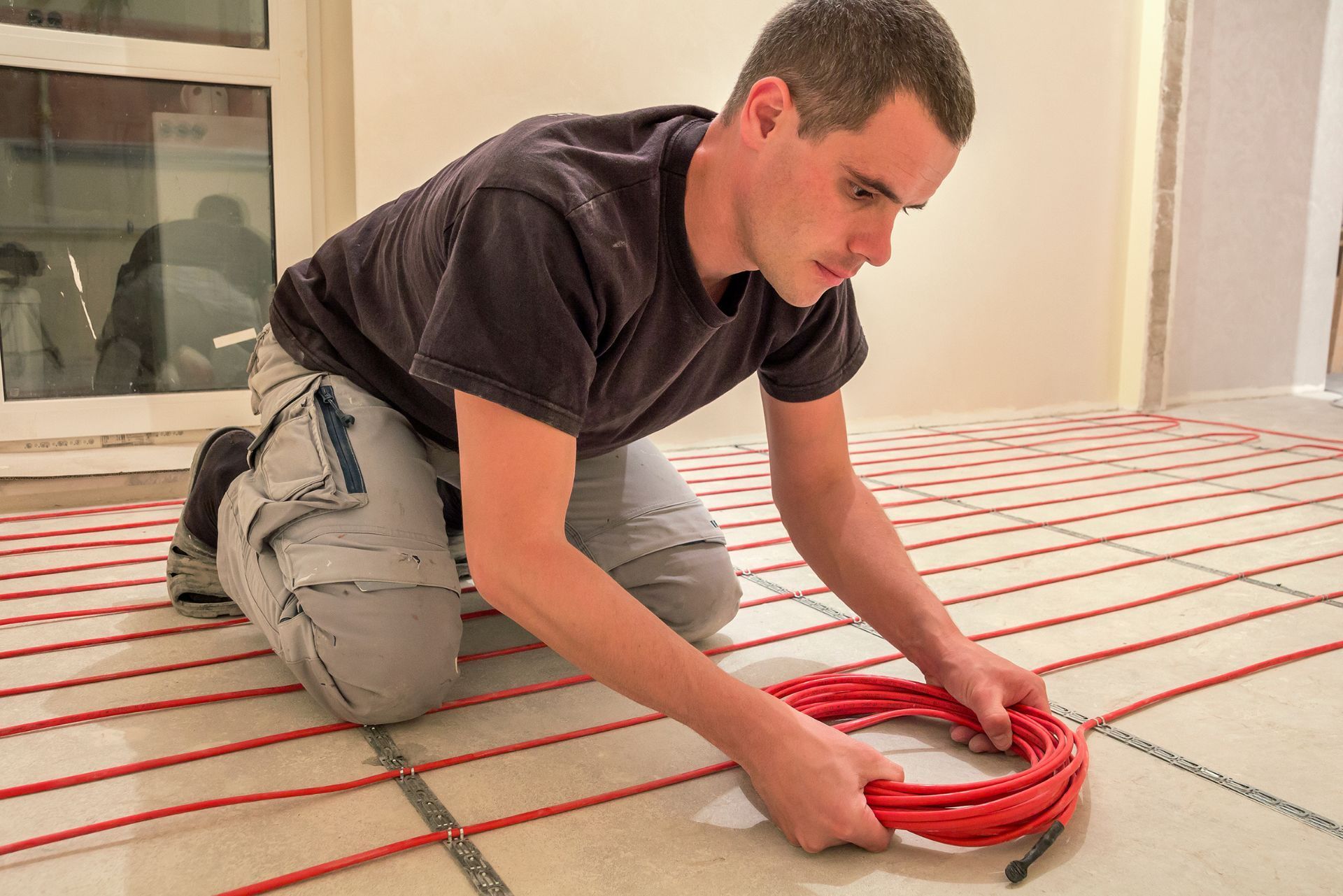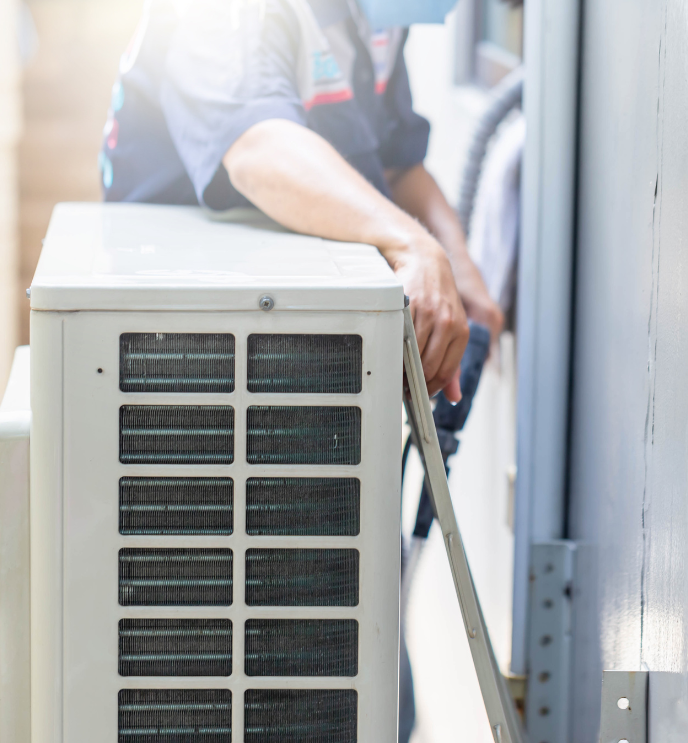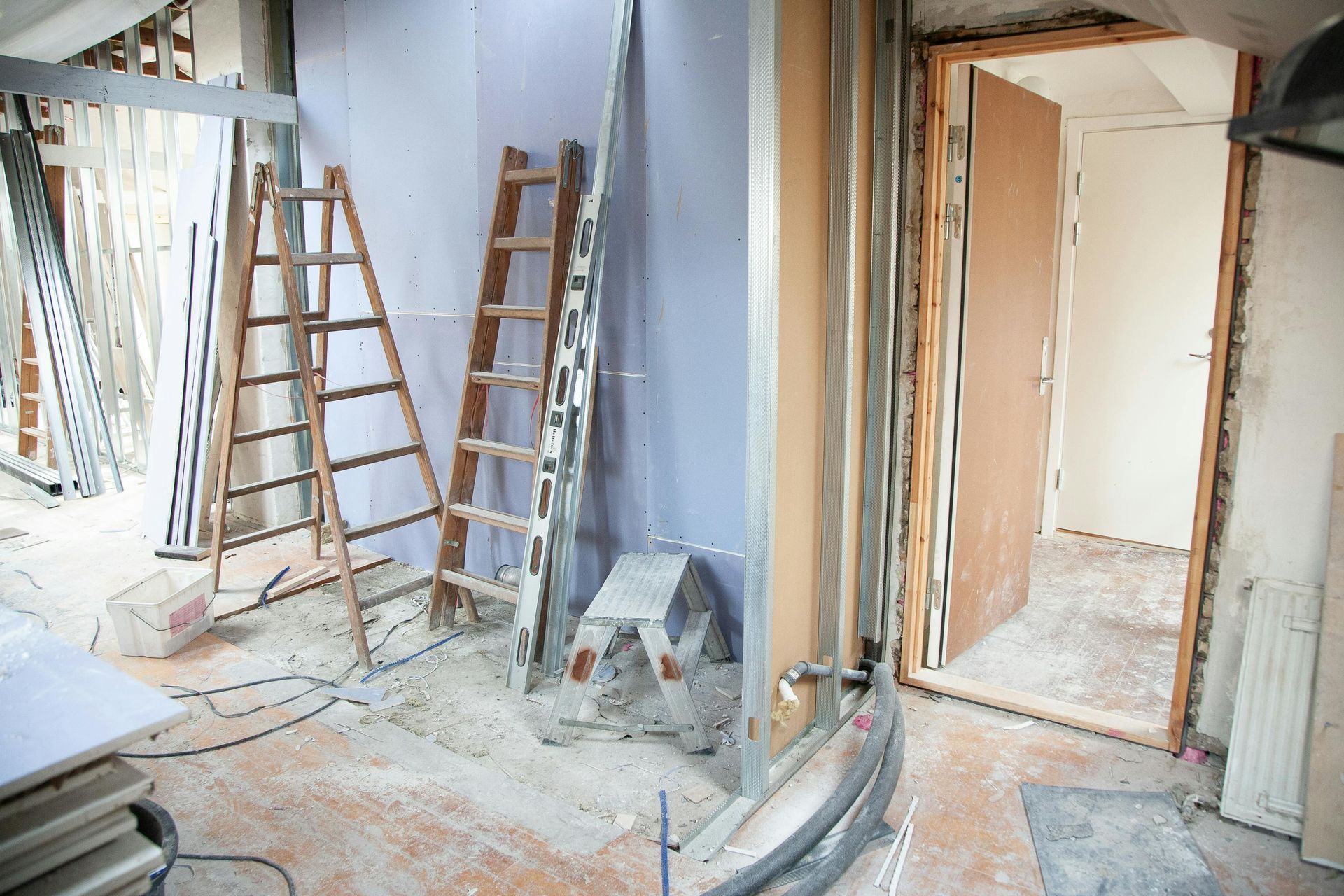Types of Contractors We Serve
Jonathan Behr
Owner of Contractor Insurance Pros by Behr Insurance Services
Index
The Importance of Insurance for Radiant Heating Technicians
Types of Insurance Coverage for Radiant Heating Technicians
Factors to Consider When Choosing Insurance
Finding the Right Insurance Provider
The Cost of Radiant Heating Technician Insurance
Common Misconceptions About Insurance
Contact Us
Phone
Location
Simi Valley, CA 93065
The Woodlands, TX 77382
Katy, TX 77494
In the world of home and commercial heating solutions, radiant heating systems have gained immense popularity for their efficiency and comfort. However, as with any profession, radiant heating technicians face unique risks and challenges that necessitate specialized insurance coverage. This article delves into the importance of insurance for radiant heating technicians, the types of coverage available, and key considerations when selecting the right policy.
The Importance of Insurance for Radiant Heating Technicians
Radiant heating technicians are responsible for installing, maintaining, and repairing complex heating systems that operate beneath floors or within walls. While this work is rewarding, it also comes with inherent risks, including potential accidents, equipment failures, and liability claims. Insurance serves as a safety net, protecting technicians from financial losses that could arise from these situations.
Risk Management
Every profession carries its own set of risks, and radiant heating technicians are no exception. The nature of their work often involves handling heavy equipment, working in confined spaces, and dealing with high-pressure systems. Accidents can happen, and without proper insurance, the financial burden can be overwhelming. Insurance not only provides peace of mind but also helps technicians manage risks effectively. Furthermore, many insurance policies offer additional resources, such as risk assessment tools and safety training programs, which can empower technicians to minimize hazards and improve their operational practices. By investing in insurance, technicians are not just protecting themselves financially; they are also committing to a culture of safety and professionalism in their field.
Legal Protection
In the event of a dispute or claim, having the right insurance coverage can be crucial. Legal fees can accumulate quickly, and without insurance, technicians may find themselves facing significant financial strain. Insurance policies often cover legal expenses, allowing technicians to focus on their work rather than worrying about potential lawsuits. Additionally, many insurance providers offer access to legal experts who can provide guidance on compliance with industry regulations and standards. This support can be invaluable, especially in an industry where regulations can frequently change. By securing comprehensive insurance, technicians not only shield themselves from the financial repercussions of legal challenges but also gain a strategic advantage in navigating the complexities of their profession.
Client Confidence
In an increasingly competitive market, having insurance can also enhance a technician's reputation and instill confidence in clients. Homeowners and businesses are more likely to hire professionals who can demonstrate that they are insured, as it reflects a commitment to quality and accountability. This assurance can lead to more business opportunities and referrals, as satisfied clients are likely to recommend technicians who prioritize safety and reliability. Moreover, some insurance policies may also include coverage for workmanship guarantees, further solidifying trust with clients by ensuring that any issues arising post-installation will be addressed without additional financial burden. As such, insurance not only protects technicians but also serves as a powerful marketing tool that can differentiate them from their competitors.

Types of Insurance Coverage for Radiant Heating Technicians
Understanding the various types of insurance available is essential for radiant heating technicians. Each type of coverage addresses different aspects of their work and can be tailored to meet specific needs.
General Liability Insurance
This type of insurance is fundamental for any technician, providing coverage for bodily injury, property damage, and personal injury claims. For instance, if a technician accidentally damages a client's property while working on a radiant heating system, general liability insurance can cover the costs associated with repairs or legal claims. Additionally, this insurance can also protect against claims arising from advertising injuries, such as defamation or copyright infringement, which can be particularly relevant for technicians who market their services online or through social media. Having general liability insurance not only safeguards the technician's finances but also enhances their credibility and professionalism in the eyes of potential clients.
Professional Liability Insurance
Also known as errors and omissions insurance, professional liability insurance protects technicians against claims of negligence or inadequate work. If a client believes that the technician's work did not meet industry standards, this insurance can cover legal fees and settlements. This type of coverage is especially important for technicians who provide design or consulting services in addition to installation and repair. Furthermore, as radiant heating technology evolves, so do the standards and expectations of clients. Professional liability insurance ensures that technicians are protected against claims that may arise from new technologies or methods that they may not have been previously familiar with, thus allowing them to take on innovative projects with confidence.
Workers’ Compensation Insurance
For radiant heating technicians who employ others, workers’ compensation insurance is a legal requirement in many states. This insurance covers medical expenses and lost wages for employees who are injured on the job. It also protects employers from lawsuits related to workplace injuries. Even for solo technicians, having workers' compensation can be beneficial, as it covers their own injuries while working. Moreover, this coverage can foster a safer work environment, as it encourages technicians to prioritize safety protocols and training to minimize the risk of accidents. In an industry where technicians often work in potentially hazardous conditions, such as confined spaces or with heavy equipment, having adequate workers' compensation insurance is not just a legal obligation but a crucial aspect of responsible business practice. Additionally, some states offer incentives for businesses that maintain a good safety record, which can further benefit technicians in the long run.
Factors to Consider When Choosing Insurance
Selecting the right insurance policy requires careful consideration of various factors. Each technician’s needs may differ based on their specific circumstances, so it’s essential to evaluate options thoroughly. This process can often feel overwhelming, but breaking it down into manageable components can simplify decision-making and lead to a more tailored insurance solution.
Assessing Risk Exposure
Understanding the specific risks associated with radiant heating work is crucial. Technicians should assess their exposure to accidents, property damage, and liability claims. This assessment will help in determining the appropriate level of coverage needed. For instance, a technician who frequently works in residential settings may face different risks than one who primarily operates in commercial environments. Additionally, factors such as the age and condition of the properties they work on, the complexity of the systems they install, and even regional climate conditions can significantly influence risk levels. By conducting a thorough risk assessment, technicians can better anticipate potential issues and ensure they have adequate protection against unforeseen events.
Policy Limits and Deductibles
When reviewing insurance options, it’s important to consider policy limits and deductibles. Policy limits refer to the maximum amount the insurance company will pay for a claim, while deductibles are the out-of-pocket costs that the technician must pay before the insurance kicks in. Balancing these factors can help technicians find a policy that offers sufficient coverage without breaking the bank. Moreover, understanding the implications of choosing higher deductibles can be beneficial; while it may lower monthly premiums, it also means that technicians must be prepared to cover more costs upfront in the event of a claim. It’s advisable to carefully evaluate one’s financial situation and risk tolerance when making these decisions. Furthermore, exploring additional coverage options, such as umbrella policies or endorsements, can provide further peace of mind, ensuring that technicians are fully protected against a wide range of potential liabilities.
Finding the Right Insurance Provider
Choosing an insurance provider is a significant decision that can impact a technician's business. It’s essential to find a reputable company that understands the unique needs of radiant heating professionals. This not only protects the technician's financial interests but also enhances their credibility with clients, as having the right insurance can instill confidence in potential customers.
Researching Providers
Start by researching various insurance providers that specialize in coverage for contractors and technicians. Look for companies with a strong reputation, positive customer reviews, and a track record of excellent service. Online reviews and testimonials can provide valuable insights into a provider's reliability and customer support. Additionally, consider reaching out to industry associations or networking groups, as they often have recommendations for trusted insurance providers who cater specifically to the needs of heating professionals.
Comparing Quotes
Once a list of potential providers is established, obtaining quotes is the next step. Comparing quotes from multiple insurers allows technicians to evaluate coverage options, premiums, and terms. It’s important to ensure that the quotes are for similar coverage levels to make an accurate comparison. Pay attention to the details of each policy, including deductibles, exclusions, and any additional services offered, such as risk management assistance or claims support. This thorough evaluation can help technicians identify not only the most cost-effective option but also the provider that offers the best overall value for their specific business needs.
Furthermore, consider the long-term relationship with the insurance provider. A company that offers personalized service and is willing to adapt coverage as the business grows can be invaluable. Establishing a rapport with an agent who understands the intricacies of radiant heating can lead to tailored advice and support, ensuring that the technician is always adequately protected as their business evolves. Don't hesitate to ask questions about policy specifics or seek clarification on any terms that seem unclear; a reputable provider will be more than willing to assist in making the process transparent and understandable.

The Cost of Radiant Heating Technician Insurance
The cost of insurance can vary widely based on several factors, including the technician's location, the size of their business, and the types of coverage chosen. Understanding these factors can help technicians budget for their insurance needs.
Location and Business Size
Insurance premiums may be influenced by the geographical location of the technician's business. Areas with higher rates of accidents or claims may result in higher premiums. Additionally, larger businesses with more employees may face different rates compared to solo practitioners due to the increased risk exposure. For instance, urban areas might present unique challenges such as higher traffic and a greater likelihood of job-related accidents, which can drive up costs. Conversely, rural technicians might benefit from lower premiums due to fewer claims, but they may also face challenges in accessing resources and support services.
Coverage Choices
The types of coverage selected will also impact the overall cost. While general liability insurance is often a necessity, adding professional liability or workers’ compensation can increase premiums. Technicians should weigh the benefits of additional coverage against the costs to determine the best approach for their business. For instance, professional liability insurance can protect against claims of negligence or failure to deliver promised services, which is particularly important in a field where precision and expertise are paramount. Furthermore, investing in comprehensive coverage may provide peace of mind, allowing technicians to focus on their work without the looming worry of potential legal or financial repercussions. Additionally, some insurers offer bundled packages that can provide discounts, making it worthwhile for technicians to explore these options to find the most cost-effective solution for their insurance needs.
Common Misconceptions About Insurance
There are several misconceptions surrounding insurance that can lead technicians to make uninformed decisions. Addressing these misconceptions is crucial for ensuring that radiant heating technicians are adequately protected.
“I Don’t Need Insurance If I’m Careful”
While being careful can reduce the likelihood of accidents, it doesn’t eliminate risk entirely. Even the most cautious technicians can encounter unforeseen circumstances that lead to claims. Insurance is a safety net that provides financial protection regardless of how careful one may be. For instance, a sudden equipment malfunction or an unexpected accident on-site can result in significant expenses. Without insurance, technicians may find themselves facing hefty repair bills or legal fees, which could jeopardize their entire business. Additionally, clients often prefer to work with insured technicians, as it reflects professionalism and a commitment to quality service.
“Insurance Is Too Expensive”
While insurance costs can add up, the potential financial burden of an accident or claim can far exceed the cost of coverage. Investing in insurance is a proactive step that can safeguard a technician's livelihood and business in the long run. Moreover, there are often options for affordable coverage tailored to the specific needs of technicians. Many insurance providers offer customizable plans that allow technicians to choose coverage levels that fit their budget while still providing essential protection. Furthermore, some insurers provide discounts for safety training or risk management practices, which can help lower premiums. By viewing insurance as an investment rather than an expense, technicians can better appreciate its value in protecting their hard-earned reputation and financial stability.
The Claims Process
Understanding the claims process is vital for radiant heating technicians. Knowing how to navigate this process can ensure that claims are handled efficiently and effectively.
Reporting an Incident
In the event of an accident or incident, the first step is to report it to the insurance provider as soon as possible. Most insurers have specific guidelines for reporting claims, which may include providing details about the incident, any involved parties, and supporting documentation. Prompt reporting can expedite the claims process.
Documentation and Evidence
Gathering evidence and documentation is crucial when filing a claim. This may include photographs of the incident, witness statements, and any relevant contracts or agreements. Thorough documentation can strengthen the claim and help ensure that the technician receives the coverage they are entitled to.
The insurance landscape is constantly evolving, with new policies, regulations, and coverage options emerging regularly. Radiant heating technicians should stay informed about these changes to ensure they have the best protection available.
Industry Associations and Resources
Joining industry associations can provide valuable resources and updates on insurance trends. These organizations often offer educational materials, webinars, and networking opportunities that can help technicians stay informed about the latest developments in insurance and risk management.
Regular Policy Reviews
Conducting regular reviews of insurance policies is essential. As a technician's business grows or changes, their insurance needs may also evolve. Regularly assessing coverage can help ensure that the technician is adequately protected against new risks or liabilities.
Conclusion
Radiant heating technicians play a vital role in providing efficient and comfortable heating solutions. However, the nature of their work comes with inherent risks that necessitate proper insurance coverage. By understanding the importance of insurance, the types of coverage available, and key considerations when selecting a policy, technicians can protect themselves and their businesses effectively.
Investing in the right insurance not only safeguards against financial loss but also provides peace of mind, allowing technicians to focus on what they do best—delivering exceptional heating solutions to their clients. As the industry continues to evolve, staying informed and proactive about insurance needs will be essential for long-term success.
Areas we serve









